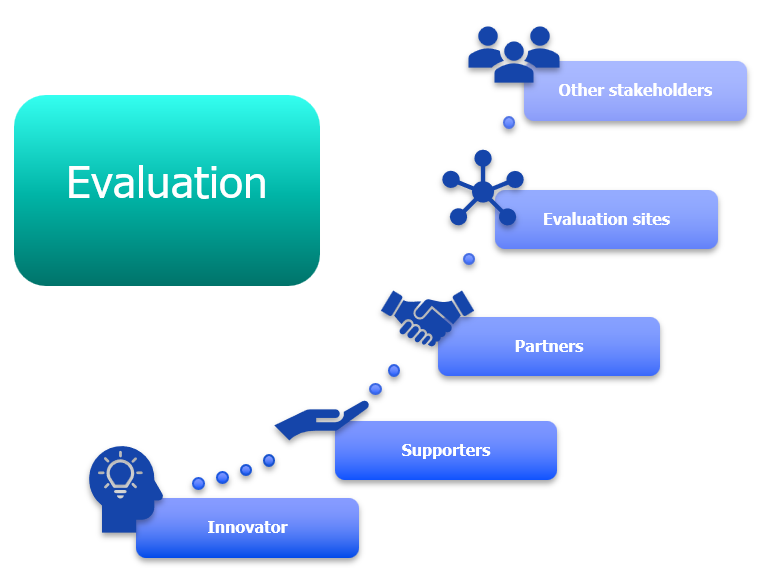SimEPR is an electronic patient record (EPR) based solution to clinical simulation-based education. It aims to replace the conventional paper-based approach to delivering simulation training, in line with current work practices and digital transformation and Net-Zero strategies of NHS England South East (formerly HEE) and the NHS.
The completion of the evaluation framework, with support from Health Innovation Kent Surrey and Sussex (HIKSS) who funded the logic model workshop and framework, and NHS England South East who funded the SimEPR licenses for evaluation and an evaluation support grant for the KSS Regional Simulation & Human Factors Project, marks the first milestone in setting up the involved parties for an effective multi-site evaluation of the system-agnostic, EPR-based, clinical simulation training solution. It will help with demonstrating the impact of SimEPR, with potential benefits for health education and readiness for the ongoing digitalisation of the NHS.
It allows clinical trainees to work safely through practice scenarios, which are designed to replicate real-world healthcare situations. Conventionally, this type of training involves the use of paper-based patient records, such as notes, clinical investigations, and drug charts, which does not reflect the ongoing digitalisation of NHS services and the prevalent use of electronic patient records (EPR), as well as contributing to the negative environmental impact of the NHS.
SimEPR provides an EPR-based alternative for the delivery of clinical simulation training. The browser-based application can be used at the simulation mannequin’s bedside and therefore provides a more realistic reflection of current work practices. The simplistic EPR structure provides a solution that can be used without extensive system training and independently of a site’s specific EPR system provider.
Health Innovation Kent Surrey Sussex and NHS England South East (formerly Health Education England) have supported SimEPR and the KSS Regional Simulation & Human Factors Project in the planning of a multi-site evaluation to assess the potential impact of SimEPR. In collaboration with these parties and the input from six evaluation sites across the South East region, Unity Insights has developed an evaluation framework for the proposed evaluation.
What is an evaluation framework?
An evaluation framework is a document that outlines details for a proposed evaluation, including:
- Aims
- Potential benefits
- Methodology
- Potential barriers and risks, and
- Project management considerations (e.g., resources, governance, timeline)
- It provides a set of bespoke recommendations and a ‘toolkit’ to conduct an effective and well-rounded evaluation to evidence a solution’s impact.
At Unity Insights we use a collaborative approach in our extensive experience in real-world evaluations to develop evaluation frameworks, which reflect the aims, resources, and needs of a project and consider the perspective of key target audiences. We allow all involved parties to share their thoughts, suggestions, and concerns during interactive workshops to ensure that the evaluation can be conducted as smoothly and feasibly as possible.

The value
Taking time to plan an evaluation ahead of time and providing a strategy for implementation, data collection, analysis, risk mitigation and project management, helps set it up for success. Our approach ensures that an evaluation can be completed successfully and effectively, while optimising the demonstration of impact with the available resources.
Our clients find that evaluation frameworks provide them with a clear and helpful plan of what is needed to complete an evaluation successfully. It provides detailed guidance and decision-making advice, as needed. Below are some testimonies we received for our work on the SimEPR evaluation framework.
In addition to supporting project evaluations through the planning stages, we can provide full evaluation services, or discrete delivery support for data collection or data analysis.
“It has been a pleasure working with the team at Unity Insights. They were super professional throughout the entire process and did some fantastic work in creating a framework for evaluating SimEPR’s benefits to NHS workforce training. I would like to thank the team at Unity Insights, Kent Surrey Sussex AHSN and NHS England South East for their collaborative support on the regional South East SimEPR project”
SimEPR Founder and GP Registrar at Guy’s and St Thomas’ NHS Foundation Trust
“I’m so pleased with the work Unity Insights have done on helping us set up an evaluation framework for scaling the adoption of an innovation across the South East which will benefit many healthcare professionals using electronic patient records. The structure, methodical process, attention to the details of the different benefits streams and ability to meet the needs of all stakeholders involved in the work has been fantastic, and as a result we have a great framework and evaluation culture within the team to get the most from the pilot and ensure the innovation has maximum impact to society.”
Dr. Charlotte Roberts
Associate Director: Innovation Adoption
Health Innovation Kent Surrey Sussex
“[The evaluation framework] looks excellent to me – very thorough! Much thanks to you and the team for your hard work.”
Rosie Courtney
Programme Lead
Simulation Based Education & Technology Enhanced Learning (SIM-TEL) and Patient Safety, NHS England South East
“Unity Insights have guided and supported us through a meticulous yet fluent process to collaborate in the creation of a superb Evaluation Framework, I am delighted, and eager to proceed, confident we have an excellent evaluation tool.
Andy Buttery
Project Lead, Operational Board, International J of Healthcare Simulation, HEE KSS Regional Simulation & Human Factors Project
MSc Simulation Pathway Lead, CIEHF London & S East Regional Network Lead
ASPiH Executive, SimNet
Member of the ASPiH Conference Committee
Get in touch with us
- Phone
- Email enquiries@unityinsights.co.uk
